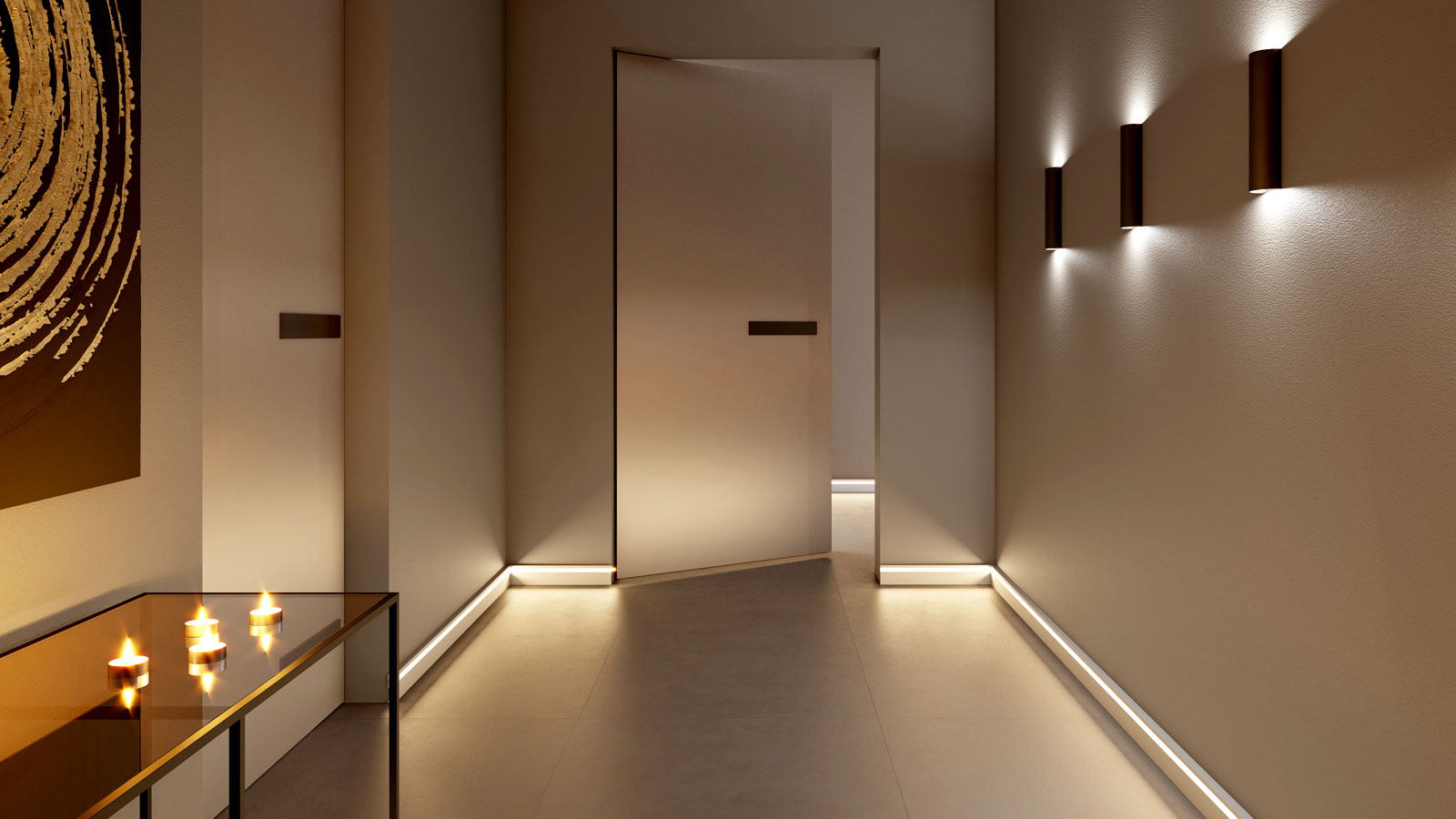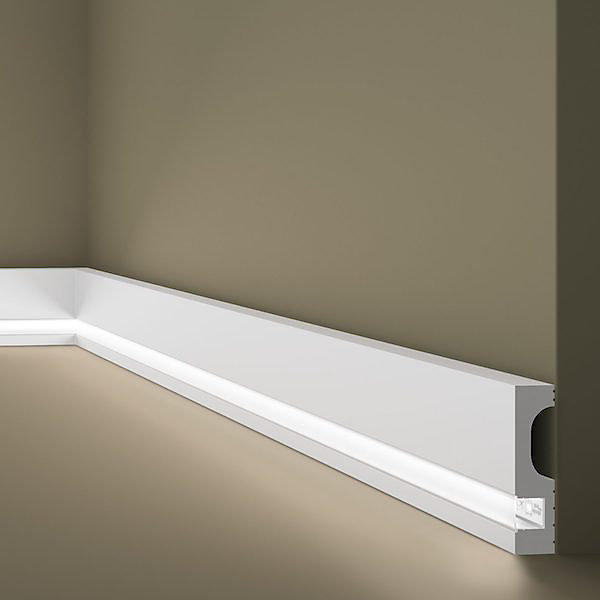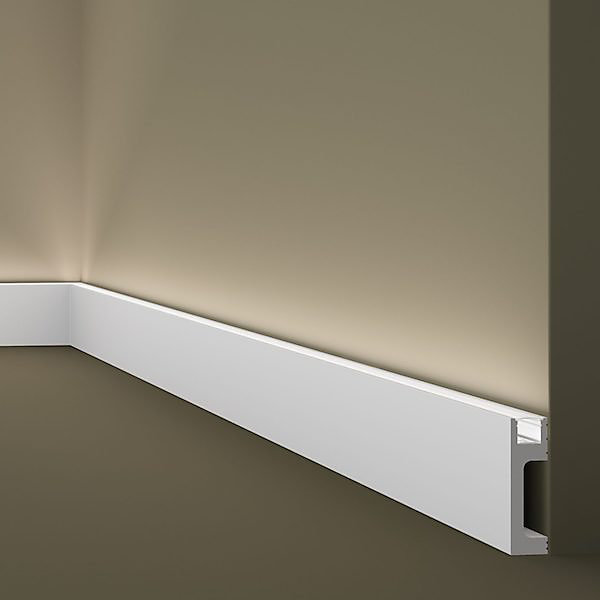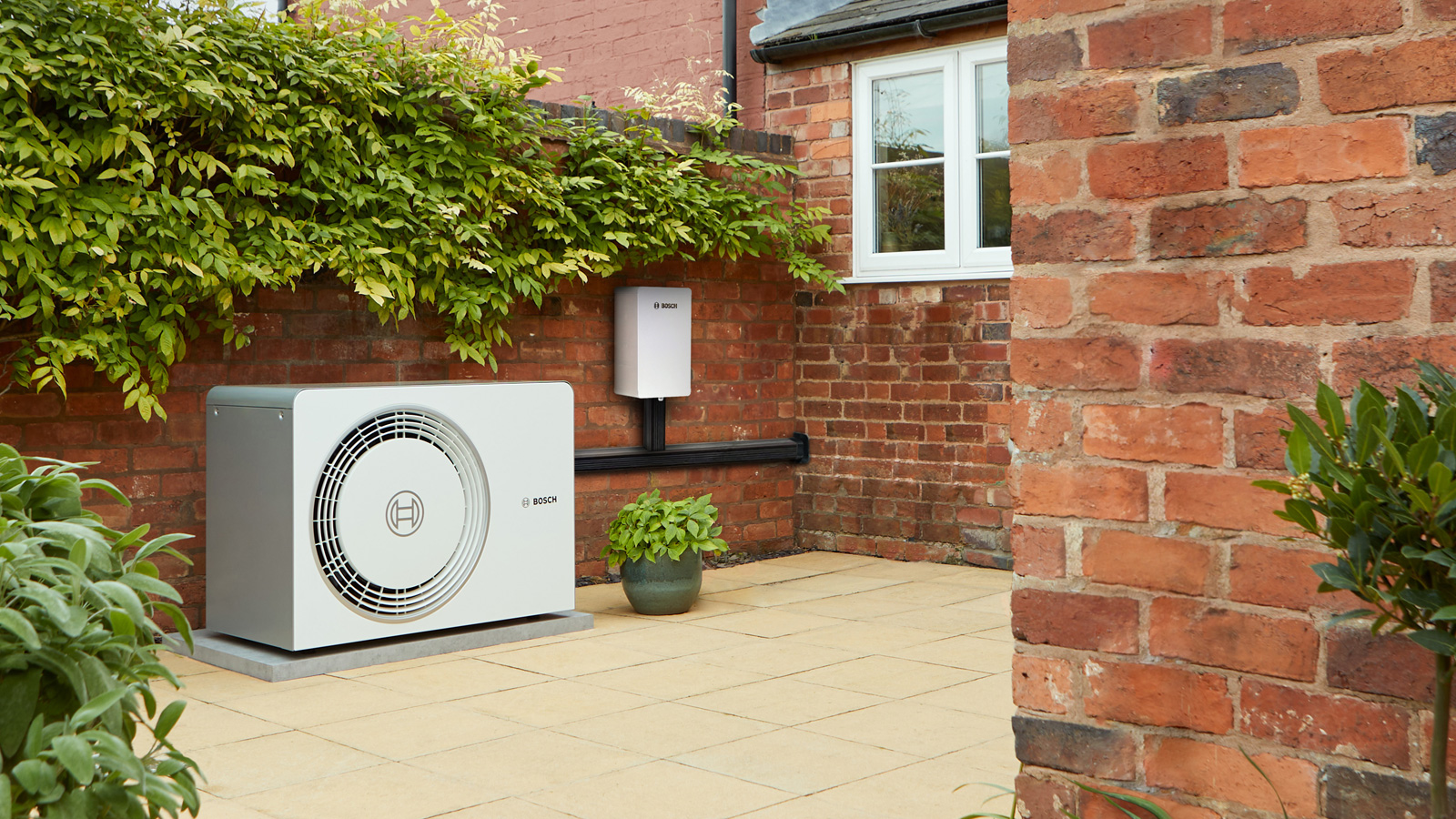Ever heard of LED skirting board? Find out why it's worth a look when designing and planning your living spaces
LED skirting board adds subtle and atmospheric lighting to a room. Discover what it is, how it works and whether you can install it yourself

If you’re looking to create smart, modern, and contemporary lighting in your home, you should definitely consider LED skirting boards. They are the perfect choice for creating ambience in a room, meaning you can say goodbye to bright, harsh lighting.
Getting your lighting design right will enhance your home's overall look and atmosphere, and LED skirting boards can play a key role in achieving this. You can opt for specialised skirting or even take on the project yourself using your DIY skills. Here you will find more than enough information to help you decide if LED skirting is right for you.

Sam Garbutt is a director at LED & Power, a company that specialises in providing commercial and residential LED lighting products to the trade and wholesale market. Sam has worked in the lighting industry since 2016, and has a wide range of knowledge regarding the installation and maintenance of light fixtures to create a safe and aesthetically pleasing interior and exterior.
What is LED skirting?
Sam Garbutt, LED lighting specialist from LED & Power, succinctly describes the premise of LED skirting: “LED skirting combines traditional skirting boards with integrated LED lights to illuminate a room's perimeter”.
It is a modern lighting idea that allows a far more subtle light in a room than a traditional rose and pendant. It is typically installed along the top or bottom of a skirting board, depending on what type of light you want. And it will need to be wired up to your home mains electricity supply to work effectively.
Try these to get LED skirting that you'll love

A lightweight HDPS polyurethane skirting board, which is strong, easy to install, and designed for indirect lighting with LED light channels at the top and bottom of the board.

Pre-primed and ready for painting, this LED skirting board is supplied with a top channel and a diffuser screen to cover any LED lights you install. Has a rough back surface for optimum bonding.

Every DIY projects needs a good drill. This cordless offering includes a two-speed gearbox and 44 Nm of torque. The set includes a 2.5 Ah battery, a charger, a case and a 22-piece accessory set.
Reasons to choose LED skirting
1. Add atmosphere
Skirting lighting is ideal for adding atmosphere to a room, according to Garbutt, who shares, “Aesthetically, LED skirting can improve the ambience of a room by creating a cosy and warm atmosphere through its soft illumination.” He adds, “This can be especially useful in living rooms or bedrooms as it creates a more inviting feel, perfect for relaxing.”
2. Energy efficient
Garbutt says, “LED skirting boards are highly energy efficient as LED lights use significantly less power and last longer than traditional incandescent lights.” And this brings with it another benefit, continues Garbutt, “Over time, this can help to reduce energy usage and provide cost-saving benefits.”
3. Improved visibility
LED lighting on skirting can provide a pathway to follow in low light areas, shares Garbutt, “As LED skirting illuminates the perimeter of rooms, hallways and staircases, it can help to improve visibility on an evening to prevent trips and falls.
Bring your dream home to life with expert advice, how to guides and design inspiration. Sign up for our newsletter and get two free tickets to a Homebuilding & Renovating Show near you.
4. Long lasting
LED skirting is not a short-term investment. Garbut explains why, “A lot of LED skirting boards are made from aluminium, making them waterproof and highly durable.” He adds, “Compared to traditional wooden skirting boards, aluminium is a far more long-lasting choice”.
Do I need a specialist skirting board?
No, but there are specialist LED skirting boards available that make installation much easier. Garbutt explains how they work, “Specialist LED skirting boards have a built-in channel to install LED strip lights, this keeps the look of a traditional skirting board whilst providing a glow around the perimeter of your room.”
He adds, “It’s important to use a specialist LED skirting board as it ensures the lights are installed safely and remain fully concealed.” Typically, an LED skirting board has a channel near the bottom to direct light onto the floor or a channel on top to act like an uplight.
However, if you’re DIY skills are up to scratch, you can use standard skirting boards, as Louis Georgiou, Operations Director at Essential Workwear, points out, “Standard skirting boards can also work if planned carefully. A routed groove or slim aluminium channel can hold the LED strip securely, while cable management clips help keep wires tidy."
He adds, “The key is precision, ensuring the lights sit flush with the board and that the materials can safely handle the warmth generated by the LEDs.”
To create a groove in standard wooden skirting board, you will need the assistance of a wood router like this VonHaus Compact Palm Router Saw from Amazon. This will give you a smooth, professional-looking channel. Doing it yourself will save money, but it will add time to the installation process.

Louis Georgiou, as Operations Director at Essential Workwear, excels in construction and DIY sectors, providing practical insights and strategic views on efficient building finishes.
Can I install LED skirting myself?
Installation is a three-part process, allowing a competent DIYer to install the skirting boards and secure the LED lighting strip in place.
However, the electrical part of the process should be taken on by a professional, shares Garbutt, “If you have basic DIY skills, then you will be more than capable of installing LED skirting yourself, but you may need a professional electrician to complete the final wiring.”
He explains why, “LED skirting needs to be connected to the mains, but it must be done using an external LED driver as this will convert the high-voltage power to low-voltage. It’s important not to attempt electrical work by yourself, as it can result in electric shocks or burns.”
If you do decide to install LED skirting yourself, Garbutt points out the tools and materials you’ll need:
- Specialised LED skirting boards
- LED strip lights
- External LED driver
- Tape measure - like this DEWALT Atomic Compact Series 25 ft. Tape Measure from Amazon
- Adhesive tape
- Sharp scissors or a utility knife - like this Amazon Basics Durable Folding Utility Knife
- Screwdriver
- Mounting screws
- Drill
- Hand saw or Mitre saw - like this DEWALT DWS774-GB Slide Mitre Saw from Amazon
LED Skirting costs
The costs for LED skirting are typically split into three parts – the skirting board, LED lighting and connection to the mains electricity. Georgiou says, “Expect to pay around £30–£55 per metre for LED skirting.” The cost for just the skirting board will be around £15-20 per metre, so expect to pay £300 for an average-sized room.
To connect, Georgiou says, “Any mains connection must meet UK electrical safety regulations, so professional installation typically costs £150–£250 depending on room size and complexity.
Installing LED skirting is straightforward for those confident with basic DIY skills, but any mains connection must meet UK electrical safety regulations. You will need essential tools such as a drill, measuring tape, fixings, and adhesive profiles to secure the lights.
FAQs
What colour LEDs look best in skirting board?
The colour of LEDs can make a big difference to the ambience and atmosphere in a living space. Stuart Murray, Founder of Retrovintage explains, “For LED skirting, the colour temperature of the light plays a major role in how a room feels.” He adds, “Choosing the right tone ensures the lighting enhances the overall design rather than overpowering it.”
What type of space you are working with can have a big bearing on the colour you choose. Murray explains what works best in different scenarios, “Cool white LEDs work best in modern, minimalist, or contemporary spaces where clean lines and sharper tones complement the décor. "
He continues, "Warm white creates a softer glow that suits traditional, rustic, or cosy interiors by adding warmth and character. Neutral white offers a balanced option for transitional homes or areas where both comfort and clarity are needed."

Stuart Murray, as a knowledgeable interior designer and skirting board specialist with a profound understanding of design trends and material craftsmanship, is well-qualified to provide expert advice on the integration and nuances of LED skirting.
What type of LEDs can be used in skirting?
You will need a specific type of LED lighting for LED skirting boards that fits into the channels in the skirting board. Murray recommends, “Any low-voltage LED strip can be fitted into skirting, including flexible, dimmable, or addressable RGB types for colour variation and mood control.”
He adds, “Using aluminium channels and diffusers helps distribute the light evenly along the skirting, creating a continuous, professional finish that feels intentional and polished.”
LED skirting boards are just one way to add ambience and atmosphere with lighting. You can pair it up with some other smart lighting ideas to create the perfect lighting design for your living space. Check our living room wall lighting ideas, hallway lighting ideas and small kitchen lighting ideas for inspiration for your next project.
Steve Jenkins is a freelance content creator with over two decades of experience working in digital and print and was previously the DIY content editor for Homebuilding & Renovating.
He is a keen DIYer with over 20 years of experience in transforming and renovating the many homes he has lived in. He specialises in painting and decorating, but has a wide range of skills gleaned from working in the building trade for around 10 years and spending time at night school learning how to plaster and plumb.
He has fitted kitchens, tiled bathrooms and kitchens, laid many floors, built partition walls, plastered walls, plumbed in bathrooms, worked on loft conversions and much more. And when he's not sure how to tackle a DIY project he has a wide network of friends – including plumbers, gas engineers, tilers, carpenters, painters and decorators, electricians and builders – in the trade to call upon.

